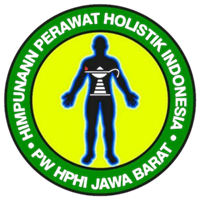Relationship Between Age and Education of Women of Fertile Age with Participation in Long-Term Contraceptive Methods
DOI:
https://doi.org/10.56359/gj.v5i1.366Keywords:
Age, Education, MKJP MethodAbstract
Objective: The aim of this research is to determine the relationship between age and education and the decision of women of childbearing age (WUS) to become MKJP family planning acceptors in Mamuju District.
Method: This research is quantitative research with a cross-sectional method. Data collection techniques include questionnaires. The data analysis used was univariate analysis and bivariate analysis with the chi square statistical test.
Result: The results of research based on the Chi Square Test show that there is a relationship between age (p value = 0.050) and education (p value = 0.017) and MKJP family planning participation.
Conclusion: The results of this study explain that there is a relationship between age, education, and WUS participation in family planning programs using long-term contraceptive methods.
Downloads
References
Aldila, D., & Damayanti, R. (2020). Persepsi Terhadap Alat Kontrasepsi Dengan Keputusan Penggunaan MKJP Dan Non MKJP. Hasanuddin Journal of Midwifery, 1(2), 58–65.
Andini, W. S., Karyus, A., Pramudho, K., & Budiati, E. (2023). Determinan Penggunaan Alat Kontrasepsi dalam Rahim (AKDR) oleh Akseptor Metode Kontrasepsi Jangka Panjang (MKJP). Jurnal Ilmiah Permas: Jurnal Ilmiah Stikes Kendal, 13(4), 1209–1232.
Asi, M., Kurniawan, F., Sutriningsih, S., Irawati, E., Setiawati, R., Estiyani, A., Satriyandari, Y., Niar, N., & Mahmudah, S. (2023). Pelayanan Keluarga Berencana.
BKKBN. (2015). Kualitas Sumber Daya Manusia Dalam Menggapai Bonus Demografi. Jurnal Populasi 2(1), 102-14.
BKKBN. (2020). Rencana Strategis Badan Kependudukan dan Keluarga Berencana Nasional Tahun 2020-2024. Jakarta: Badan Kependudukan dan Keluarga Berencana Nasional.
BPS, BKKBN, Kemenkes. (2017). Survey Demografi Kesehatan Indonesia. Jakarta: Badan Kependudukan dan Keluarga Berencana Nasional
BPS. (2012). Survey Demografi Kesehatan Indonesia. Jakarta: BPS.
Febriyanti, N., Monanisa, M., & Yusmiono, B. A. (2023). Analisis Tingkat Keberhasilan Program Keluarga Berencana Pada Masyarakat Pasangan Usia Subur Di Desa Sukarame Kecamatan Gumay Talang. Jurnal Swarnabhumi: Jurnal Geografi Dan Pembelajaran Geografi, 8(2), 88–95.
Ibrahim, W. W., Misar, Y., & Zakaria, F. (2019). Hubungan usia, pendidikan dan paritas dengan penggunaan AKDR di Puskesmas Doloduo Kabupaten Bolaang Mongondow. Akademika, 8(1), 35–44.
Jaya, I. K., & Ir Ranatwati, M. P. (2022). Kependudukan Dan Lingkungan Hidup. Feniks Muda Sejahtera.
Kemenkes. (2021). Pedoman Pelayanan Kontrasepsi dan Keluarga Berencana. Jakarta: Kemenkes RI
Mamuju, D. (2022). Data Profil Kesehatan Kabupaten Mamuju Tahun 2021. Mamuju: Dinas Kesehatan Kabupaten Mamuju.
Notoatmodjo, S. (2014). Promosi Kesehatan dan Perilaku Kesehatan Edisi Revisi. Jakarta: Rineka Cipta.
Rompah, J. K. O., Goni, S. Y. V. I., & Tasik, F. C. M. (2023). Efektivitas Program Keluarga Berencana Pada Dinas Pengendalian Penduduk Dan Keluarga Berencana Kota Bitung Dalam Menekan Laju Pertumbuhan Penduduk Di Kota Bitung. AGRI-SOSIOEKONOMI, 19(2), 1247–1254.
Rosidah, L. K. (2020). Pengaruh Tingkat Pendidikan Dan Usia Terhadap Penggunaan Metode Kontrasepsi Jangka Panjang Tahun 2018 The Effect Of Education Level And Age On The Use Of Long-Term Contraception In Year 2018. Jurnal Kebidanan, 9(2), 109.
Setyorini, C., Lieskusumastuti, A. D., & Hanifah, L. (2022). Faktor-Faktor Yang Mempengaruhi Penggunaan Metode Kontrasepsi Jangka Panjang (MKJP): Scoping Review. Avicenna: Journal of Health Research, 5(1).
Triyanto, L., & Indriani, D. (2018). Faktor yang Mempengaruhi Penggunaan Jenis Metode Kontrasepsi Jangka Panjang pada Wanita Menikah Usia Subur di Provinsi Jawa Timur . Indonesian Journal Public Health, 13(2), 246-257.
Downloads
Published
How to Cite
Issue
Section
License
Copyright (c) 2024 Erna Amin, Ajeng Hayuning Tiyas, Yulianti Anwar, Suryanti S, Nur Anita

This work is licensed under a Creative Commons Attribution 4.0 International License.















